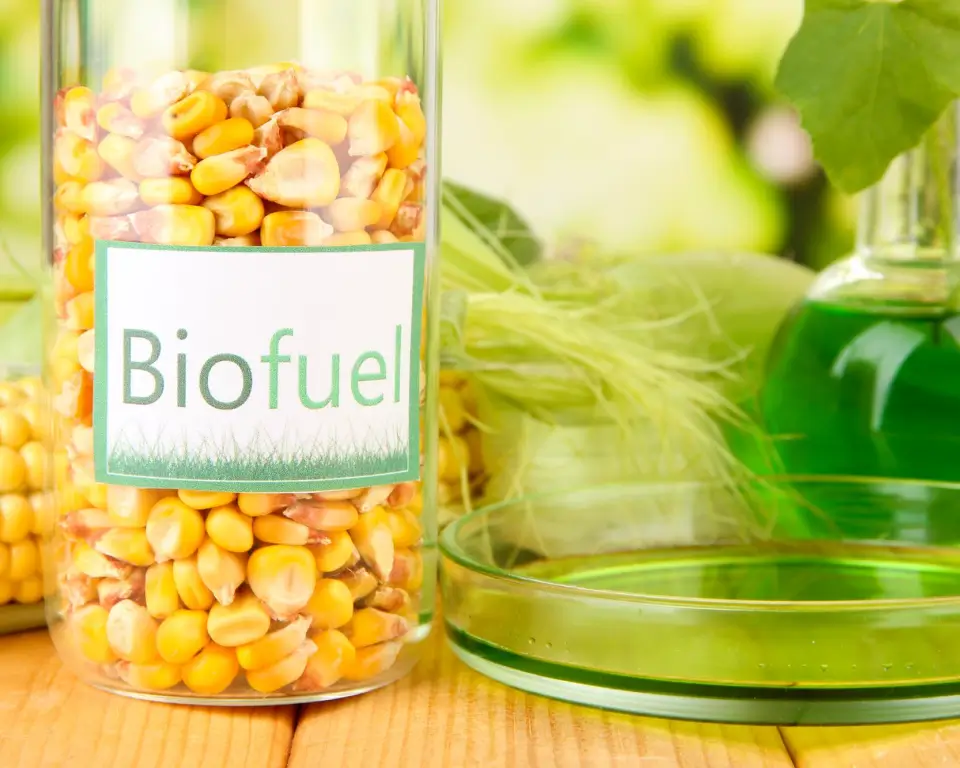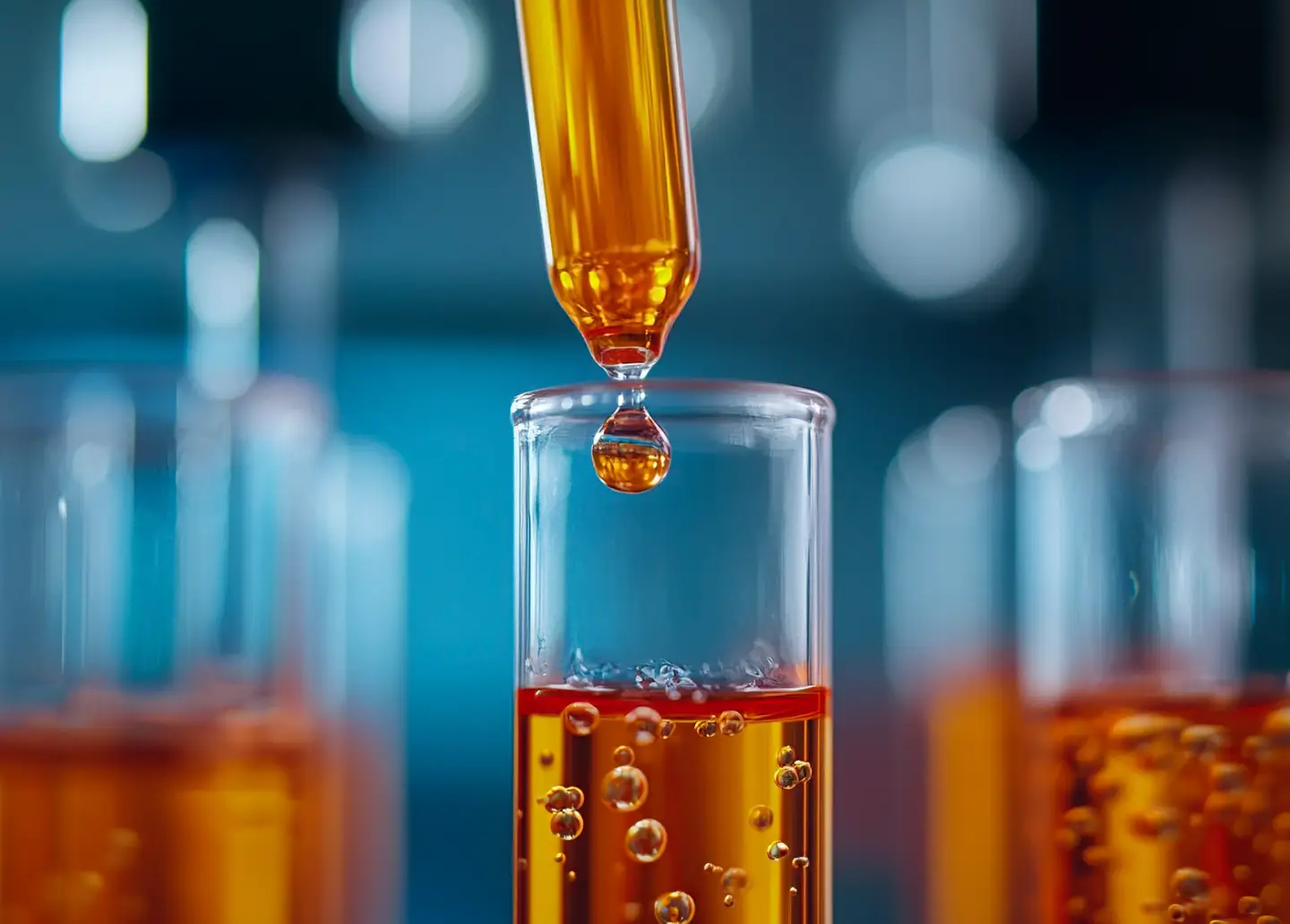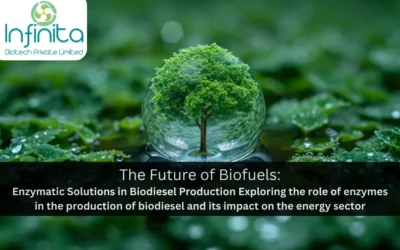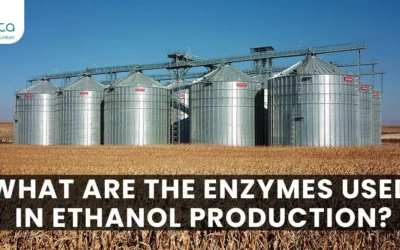Biofuels have emerged as a promising solution to combat climate change and reduce our dependence on fossil fuels. With advancements in technology, enzymatic solutions are revolutionizing the production of biodiesel, offering a more efficient and sustainable...
ENZYMES
Second Generation Biofuel Enzymes Manufacturer
What are Second Generation Biofuel Enzymes?
It is now a harsh reality that the world’s obsession with fossil fuels has caused detrimental consequences, including a decline in crude oil reserves, a decrease in air quality, an increase in global temperatures, an erratic change in weather, etc. Biofuels have been investigated as a possible alternative renewable energy source to encourage sustainability and independence from fossil fuels, due to the health and environmental effects of fossil fuels utilization, and are now preferred as a blend or fossil petrol substitute. Second-generation bioethanol production helps to overcome the loop-holes of the first generation since it utilizes non-edible feedstock sourced from agriculture and forestry wastes. Lignocellulosic and starchy materials from these wastes are convertible to fermentable sugars that can be further processed, resulting in anhydrous bioethanol as the final product. Bioethanol is considered to be a promising potential fuel that could provide an alternative to petrol in the transport sector.Biofuel enzymes play a crucial role in the production of second-generation bioethanol from non-edible feedstock. These specialized enzymes efficiently convert lignocellulosic and starchy materials into fermentable sugars, enabling the sustainable and efficient production of bioethanol as an alternative to fossil fuels.

Our Solutions

Enzymes for Biodiesel
Biodiesel is a renewable energy source unlike other petroleum products that will vanish in years to come.Cellulase Complex Enzymes for Cellulosic Ethanol
Cellulosic Ethanol, or Second-generation Ethanol, is a biofuel produced from cellulose (the stringy fibre of a plant) rather than from the plants seed, fruit or tuber.

Booster
Multi enzymes booster to hydrolyse components of pre-treated Biomass.Higher Bioethanol Yield
Increased Fermentable Sugars
Useful For Various Non-Food Biomass
Related Blogs & Insights
What Are The Enzymes Used In Ethanol Production?
Given the predicted exhaustion of Crude-oil-based fuel energy supply, bioethanol has gained importance as an alternate source of energy. Bioethanol is produced via microbial fermentation and offers a cost-effective source of energy. Microbes produce the majority of...
NEED ANY HELP?
Frequently Asked Questions ,Enzymes For Second Generation Biofuel
What is second generation ethanol?
Second generation cellulosic ethanol is a biofuel that is made from the cellulosic biomass of plants. Cellulosic biomass is the non-food parts of plants, such as the stalks, leaves, and husks. This type of ethanol is considered to be more sustainable than traditional ethanol, because it does not rely on food crops to produce fuel.
Which enzymes are used in biodiesel production?
Biodiesel is a diesel fuel substitute made from vegetable oils. Biodiesel can be used in most diesel engines. Biodiesel is a renewable fuel and produces about 78% less carbon dioxide than petroleum-based diesel. The most common type of enzyme used in biodiesel production is lipase. Lipases are used to break down the triglycerides in vegetable oils and animal fats into fatty acids and glycerol.
How is cellulose converted into ethanol?
Cellulose is a type of carbohydrate found in the cell walls of plants. It can be converted into ethanol, which can be used as a fuel.There are several ways to convert cellulose into ethanol. One common method is to use enzymes to break down the cellulose into glucose, which can then be converted into ethanol.
Why is cellulose a good biofuel?
Cellulose is a good biofuel because it is a renewable resource that can be produced from a variety of plants. It is also biodegradable and environmentally friendly. Cellulose can be used to produce cellulosic ethanol, which is a fuel additive that can be used to power cars and other vehicles.
What are the uses of bioethanol?
Bioethanol or Cellulosic Ethanol is a renewable fuel made from crops such as corn, sugarcane, and wheat. It can be used in place of gasoline in cars and trucks. Cellulosic Ethanol is also used to make ethanolamine, which is a major component of many products, including paints, plastics, pharmaceuticals, and personal care products.
Driving Innovation
For A Greener Tomorrow
Committed to advancing eco-friendly biotechnology for a healthier planet.
For A Greener Tomorrow
Committed to advancing eco-friendly biotechnology for a healthier planet.

